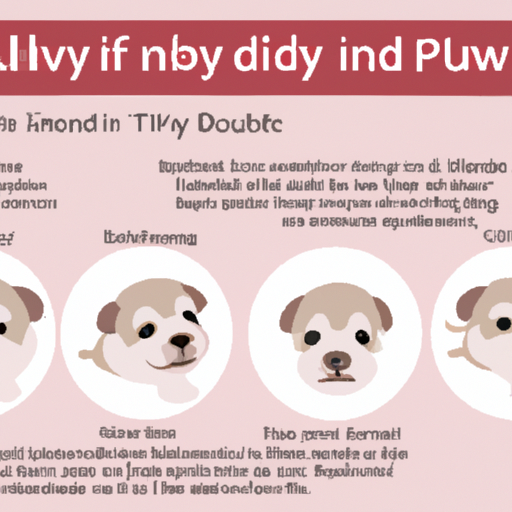Introduction
You’re about to embark on an amazing journey of care and companionship as your puppy grows and develops. Puppies, like human babies, go through distinct stages of development. Understanding these stages will help you better care for your furry friend and meet their specific needs. This comprehensive guide will walk you through the key stages in a puppy’s life.
1. Neonatal Period (Birth to Two Weeks)
Your puppy’s eyes and ears are closed at this stage, making them fully reliant on their mother. Here’s what you need to know:
- Senses: Puppies can only sense touch and taste.
- Mobility: They cannot walk but use their legs to crawl.
- Feeding: They feed several times a day on their mother’s milk.
2. Transitional Period (Two to Four Weeks)
This is an exciting time when your puppy’s eyes and ears open, and they begin to explore their world.
- Senses: Puppies start to hear and see.
- Mobility: They begin to walk clumsily.
- Teething: This is when their first teeth start to emerge.
3. Socialisation Period (Four to Twelve Weeks)
It’s during this period that your puppy will learn to interact with other dogs and people. Here’s what to expect:
- Senses: Their senses are now fully developed.
- Mobility: They start to run and play.
- Training: You can begin house-training them at this stage.
4. Juvenile Period (Three to Six Months)
Your puppy is growing fast and learning quickly during this stage. Here’s what to expect:
- Growth: They’ll have most of their adult teeth by the end of this stage.
- Training: You can start obedience training during this period.
- Socialisation: It’s important to continue socialising your puppy with other dogs and people.
5. Adolescence (Six Months to One Year)
This is a challenging time when your puppy is likely to test boundaries.
- Growth: Your puppy will reach their adult size.
- Training: Consistency is key during this stage.
6. Adulthood (One Year and Older)
Your puppy is now an adult dog, but they’ll still need your love and guidance.
- Growth: Your dog has reached their adult weight.
- Health: Regular vet checkups are crucial at this stage.
7. Senior (7 Years and Older)
Your dog is entering their golden years, and they’ll need special care.
- Health: Regular vet checkups are even more important.
- Diet: You may need to adjust your dog’s diet to suit their slower metabolism.
FAQ
Q: When should I start training my puppy?
A: Training should start during the socialisation period (around 4 weeks).
Q: How often should I take my puppy to the vet?
A: Puppies should have regular checkups every 3-4 weeks until they’re 16 weeks old. After that, a yearly checkup is usually sufficient, unless health issues arise.
Q: How can I socialise my puppy?
A: Introduce your puppy to a variety of people, environments, and other animals. Make sure all interactions are positive and safe.
Q: What should I feed my puppy?
A: Puppies need a diet high in protein and fat to support their growth. Consult your vet for specific recommendations.
Q: When is a dog considered a senior?
A: It depends on the breed, but generally, dogs are considered seniors at around 7 years of age.
In conclusion, understanding the stages of puppy development can help you provide the best care for your new family member. Always remember to consult your vet if you have any concerns about your puppy’s growth or development. It’s a journey, but with patience and care, you’ll raise a healthy, happy dog.



